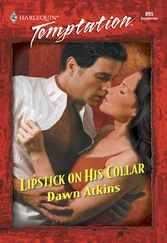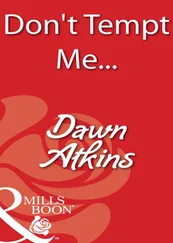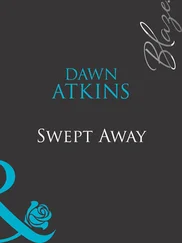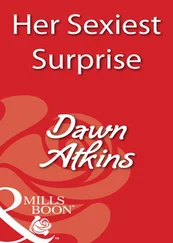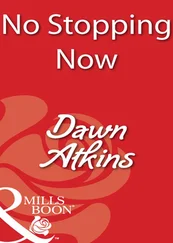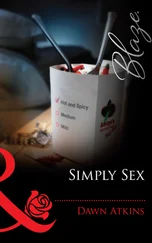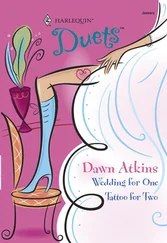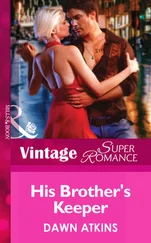“Can’t you tell goat herders from a hunter-killer RPG team?” Private First Class Emile Daggett growled. “You been in the sun too damn long, Spic.”
“Be glad I have crystal clear vision, Hick. If I hadn’t eyeballed that trip wire on that dud IED, you’d be missing the family jewels at least, cholo.”
“Who you calling cholo? There are no cho-los in the Upper Peninsula.” Daggett talked nonstop about the bait shop he intended to buy and run when he returned to his small town in northern Michigan.
“There will be if I buy that worm shack you keep talkin’ ’bout. Serious investment opportunity, amigo. Get me one of those hot Upper Peninsula shorties. Oye, cabrón, that’s the life.”
“Shut the hell up,” Daggett said. The two men, who’d named each other Spic and Hick, kept up running insults, but had each other’s backs.
The goat farmers, now visible, wore the traditional taloub—a long tunic, loose pants and head wrap. They whistled and called to their animals, urging them across the narrow irrigation ditch at the side of the road. The pastoral sound of “baas” and bells seemed proof the country was striving for normalcy. If only the government could keep the uneasy peace.
Noah snapped a photo of an Iraqi on a horse, sagging in the saddle, looking as dispirited as the town council in Balad after mortar fire had destroyed the new police building.
He checked the image. Not bad, but not brilliant. Mel would have managed a far more striking shot, he was certain. She’d been in his thoughts a lot in the months since they’d slept together. Too much, really.
“So what’s that picture for?” Fuller asked. “Some symbolic shit about tired old Iraq riding its broke-back nag into the sunset?”
Noah shrugged.
“You gotta be bored as shit watching us sweep sand into the sea.”
Noah scribbled notes: Soldiers pissed and bored and bitter. Missions seem pointless…sweeping sand into the sea, according to Fuller.
The buildings and mosques of Balad rose in the distance. He picked up the tinny murmur of a prayer playing over loudspeakers.
“Hear the prayers?” Chuy said to Noah. “Five times a day, hombre, right? So we’re driving down this street in Balad… Real narrow and twisty, sniper spots every-damn-where, and the prayer blares out. After, comes this eerie silence.” He paused, milking the moment for drama.
“Yeah?” Noah said, unobtrusively clicking on his tape recorder.
“Yo, so, they all s’posed to be in their houses or mosques, prayin’ like crazy. So anybody still runnin’ the street is up to no good, right?”
“Right.”
“I’m up in the gun, scalp pricklin’, adrenaline so high I’m not even blinkin’—you can’t blink when your blood’s hitting that hard—watching for movement, any change, a clue to something coming down. So I see this kid at my three o’clock. He’s holding something. A candy bar? An orange? Or maybe a detonator to an IED we’re about to drive over.”
“Sounds terrifying.”
“Nah, man. ’S cool. Just a day in the neighborhood in East L.A.” He laughed, but Noah could tell this situation had been bad.
“Then what?”
“The kid runs in front of us, across the road. Seconds later, boom. Direct hit on the troop carrier behind us. Driver got shrapnel, a first-class flight to the States, champagne all the way, and a Purple Heart. We all envied his ass.”
Noah stayed silent, taking in the real story Chuy was telling. He’d had the lives of the men in his HMV and those in the vehicles behind in his hands. He could never have shot the kid because he possibly held a detonator, but that explosion could have killed a dozen of his comrades and it would be on Chuy—at least in his mind. That was a catch-22 that would be tough to endure, day after day, patrol after patrol. It was no wonder post-traumatic stress disorder rates were so high among Iraq vets. Friend and foe were impossible to tell apart, making civilian casualties common, but no less horrifying.
Bo hit a bump in the road and swore as the tobacco he constantly chewed missed the window and dribbled down the inside of his door.
They passed the low mud-brick wall with a chunk blasted away that Noah had been watching for. The turnoff was close. He leaned forward to talk to Fuller. “Half mile up, there’s a road going west. I need you to drop me there. I want to walk up to talk with Captain Fariq.”
“Say what?” Fuller shifted to glare at Noah. “This is not a bus line. You don’t ring the bell at your stop. You go on patrol, you stay on patrol, Stone.”
“It’s Fariq. You know him. You work with his men. Drop me off and I’ll meet you at the turnoff on your way back.”
Fuller stared at him, unmoved.
“Look, I need this interview or my editor will yank me home. It’s the dirt road up ahead. There’s a sign pointing to Al-Talad. The area’s secure.”
Fuller turned and stared out the mud-spattered windshield. “No such thing as secure in this godforsaken land. Give a reporter an inch and he takes out a convoy,” he muttered, but Noah picked up assent in his tone, so he kept his mouth shut.
When they reached the village sign, Fuller grumbled, “Halt.” Yards back, spaced for safety, the other vehicles slowed, too.
Up the road, Noah could see corrugated-steel structures and smaller buildings, some military vehicles and a few Iraqi soldiers.
“Looks hinky to me,” Chuy said.
“Everything’s hinky to you,” Noah said, opening his door. “I got this.”
“Do not exit the vehicle, Stone!” Fuller barked. “Take us there, Dusfresne. You get twenty minutes, Stone, then we haul you into this truck. You got that?”
“Yes, sir,” he said. “Got it.” Damn. Depending on what Fariq said about him hitching a ride, he’d have some fast talking to do with Fuller, for sure.
Bo turned onto the dirt road.
As they drew nearer to the buildings, the Iraqis seemed to stiffen, weapons half raised, as if expecting a confrontation. Noah’s scalp prickled. Chuy was right. This did feel hinky. The soldiers around him in the truck tensed, shifted positions, readying their weapons.
There was a sudden thud, as if a boulder had slammed into the driver’s side of the vehicle, followed by pops and pings from bullets hitting the front grill. The windshield cracked.
Then an explosion rocked them. Noah’s eardrums felt as if they’d burst. Smoke and dust filled the air. Around him, men were shouting, but it sounded like he was underwater in mud.
Noah fumbled with the door handle, but it wouldn’t give. He was moving through a nightmare’s quicksand, stunned and slow.
The door flew open and Daggett yanked him to the ground. A few feet out, Fuller was giving hand signals to the other men. He turned back to Daggett and yelled, “Get Stone under cover. Go, go—”
Abruptly, Fuller froze. A hole appeared in his forehead, his jaw sagged and he dropped to the ground. Before Noah or Emile could react, another blast struck—a direct hit on the HMV, now empty, behind them. A wave of heat and sound plowed him down. Hot knives seemed to slice his shoulders, belly and legs. He heard an ungodly scream. Just before everything went black, he realized the scream had come from him.
WHEN NOAH CAME TO, HIS body burned with pain and every breath was a stab of agony. He lay on his side, tasting dirt and swallowing blood. His ears rang and his mind kept flickering like a lightbulb about to blow. He tested his body for mobility. His right leg and left arm seemed to be broken. Any movement made him nearly pass out. His ribs were at least cracked and every breath was torture.
He was being shouted at, but with his ears ringing, he couldn’t detect the language. A rifle jabbed him in the chest. An Iraqi soldier above him wanted Noah up.
Читать дальше

